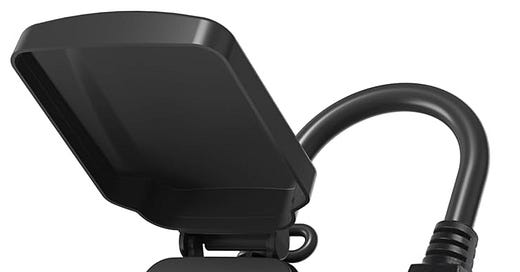Timers on battery chargers?
Here's one possible way to do safer RV battery charging while in storage...
Hey Mike,
I've run an RV rental business for the past ten years, with about 15 RVs.
I got tired of taking all the batteries out each winter to prevent them from freezing when we get temps plunging below zero degrees F for days. So for the last few winters, I've left all the RVs plugged into shore power 24x7 all winter. But then they tended to lose some water/acid. Some RVs have old-school "dumb" constant-voltage converters that charge up to 75 amps!
So this year I bought some cheap Christmas light timers ($10 ea on Amazon HERE
I run the timers about 2 hours per day to prevent water loss and over-charging.
Seems to be working fine, and saves on the electric bill! - Dave
Hey Dave,
That’s interesting idea that several other readers also suggested. And it could be a solution for RV owners with access to 120-volt AC power during winer storage. Since even a high-current charger is unlikely to ever draw more than 8 or 10 amperes at 120-volts AC, a timer rated for 15 amps is certainly sufficient as long as you don’t try to run an electric space heater or electric water heater at the same time. And even 30 minutes a day of converter running time should easily keep batteries charged. But best to test battery SoC every month anyways.
Just be sure to use a heavy duty 12-gauge extension cord and proper adapter to power your RV while in storage.
Let’s play safe out there… Mike







I’ve been keeping the lead-acid starter battery on a pick-up truck that I use infrequently charged with a charger on a timer for years (1 hour per day). I typically get 7 years plus out of my batteries. I suppose could use a maintainer but I got started with a charger on a timer many years ago and it has never failed me. It always seemed that letting the battery slightly discharge and recharge every day might actually be a good thing. I use a maintenance-free lead-acid battery and have never seen a problem. And the idea of a 1/24 duty cycle for charging seemed appealing. I suspect this strategy which Mike also described would work great with an RV in storage too. One alternative suggestion is to use a smart plug rather than a mechanical timer. Although they cost a few bucks more, Smart plugs can be programmed with an app which allows great flexibility and remote control as long as there is WiFi access at the storage location. Plus there are no moving parts so they should last longer. I realize there may not be WiFi access in RV storage lots but a smart plug should continue to work once set-up. Mike, it might be an interesting to compare the use of charger on a timer to a maintainer to see the pros and cons of each strategy. A side by side comparison experiment run for the life of the battery would be great but would take too long unless there was a way to stress the system with a load on the battery to make it fail earlier. Food for thought.
I am using a BatteryMINDer Model 2012 on a pair of 6 volts batteries, connected in series. I store and keep them in my garage and keep them on the charger all winter. Except for the checking fluid levels, I thought this was "set and forget" . Am I wrong? Am I damaging my batteries by leaving them on my BatteryMINDer, 24/7 for 6 months?